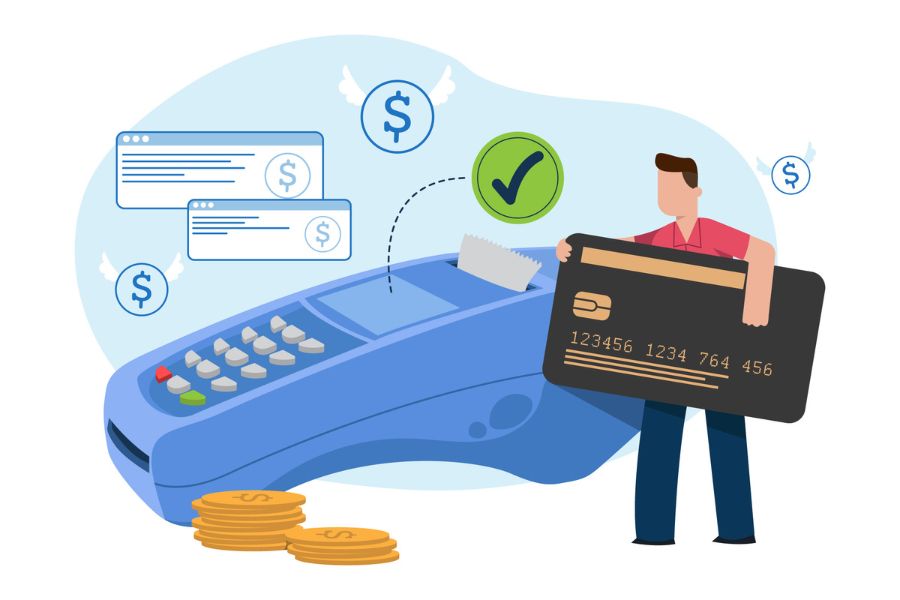Telecommunication has revolutionized how we connect, transforming every aspect of human life. It’s indispensable for keeping family and friends connected while bolstering business operations through enhanced communication and security. But what exactly does telecommunication entail, and why is it so crucial? This article addresses the question “what is telecommunication?”, explores its diverse applications in daily life, banking, and business, and explains its critical role in our increasingly interconnected world.
What Is Telecommunication?
Telecommunication, or telecom, encompasses the transmission of voice, data, and video through various electronic devices and technologies, including telephones, computers, microwave communications, fiber optics, and satellites. It also covers media such as radio and television broadcasting and the extensive use of the Internet.
The telecommunication industry constitutes a global network of businesses that provide the necessary equipment, software, and services to enable these communications.
Key players in this industry include carriers or providers who manage the communication systems and sub-sectors like telecom infrastructure, billing companies, telecom software, network security providers, network operators, handset manufacturers, and value-added service providers. These components collectively facilitate the seamless exchange of information across the globe, evolving continuously to meet advancing technological and consumer demands.
Use Cases of Telecommunication
Advancements in telecommunication technologies have made way to interact with people globally. By adopting a sophisticated communication system, many businesses worldwide have gained productivity, improved customer service, and increased growth.
- In Daily Life
Telecommunication connects long-distance family and friends via online calls, texts, emails, and social media.
It powers the rapid growth of these platforms, facilitating instant communication and media sharing. Mobile technology keeps us connected with calls and texts and provides access to the internet for entertainment like news, movies, and music.
- In Banking
Secure telecommunication technologies enable a range of financial activities. We can easily access bank accounts, transfer funds, pay bills, and shop online. Integrated voice responses and efficient call management improve customer service. Mobile banking apps simplify managing finances and transactions, enhancing user convenience and security.
- In Healthcare
Telecommunication is crucial in healthcare, enabling telemedicine and remote patient monitoring. Doctors consult with patients via video calls, improving access to healthcare services, especially in remote areas.
- In Education
The role of telecommunication in education has grown, facilitating e-learning and virtual classrooms that connect teachers and students globally.
- Emergency Services
In emergencies, reliable telecommunication is essential for coordinating rescue operations and disseminating information swiftly to the public.
- In Businesses
Telecommunication is vital in logistics, allowing real-time face-to-face communication with global partners. It accelerates decision-making and operational efficiency. Businesses leverage telecommunication for virtual meetings, connecting with employees, clients, and partners worldwide. Digital platforms, including websites and social media, help break geographical barriers, expand market reach, and increase profitability.
In the digital era, telecommunication has become a cornerstone for business operations, including retail. An exemplary tool in this regard is ConnectPOS, a leading point-of-sale system that integrates seamlessly with telecommunication technologies. It enables businesses to conduct sales transactions efficiently and manage real-time data across multiple locations. With features that support cloud-based synchronization and mobile accessibility, ConnectPOS exemplifies how telecommunication can enhance operational efficiency and customer engagement in the retail sector.

Why Telecommunication Is Important to Us
Telecommunication is crucial in the modern age as it fulfills our fundamental need to connect and communicate. It serves as the foundation for thriving governments, businesses, and communities, enabling families to stay in touch regardless of distance. The ability to communicate clearly across geographical boundaries is instrumental in building and maintaining strong relationships.
Telecommunication is also vital for security, especially during emergencies or crises. In natural disasters, effective telecommunications infrastructure is essential for coordinating search and rescue operations, helping save lives and protect property. Additionally, military organizations worldwide depend on robust telecommunication systems to maintain secure and reliable communication channels critical for their operations.
Economically, the telecommunication sector is a significant driver of global growth. According to data from Statista, the industry contributes approximately $520 billion annually to the global economy. This transformation from a simple tool for conversation to a key economic engine highlights the sector’s expansive role.
Moreover, telecommunication has a profound impact on education. It provides easy access to information, offering limitless opportunities for learning and personal growth. From internet searches to educational videos, people worldwide can acquire new skills and knowledge effortlessly. The rise of online courses and remote learning models further amplifies the pivotal role of telecommunication in shaping educational landscapes and making learning accessible to all.
Future Telecommunications Trends
As we look toward the future, the telecommunications industry is poised to undergo significant transformations driven by technological advancements and changing user demands.
1. 5G and Beyond
The rollout of 5G networks is already underway, offering unprecedented speed and connectivity. The next steps involve not only expanding 5G coverage but also beginning research into 6G technology, which promises even faster speeds, lower latency, and more reliable connections capable of supporting emerging technologies such as augmented reality (AR) and virtual reality (VR).
2. Internet of Things (IoT) Expansion
IoT connectivity is set to explode with the increased deployment of 5G networks. This will enable a vast network of connected devices, from smart home products to industrial IoT applications. Enhanced telecommunications infrastructure will facilitate real-time data exchange and automation across various sectors, improving efficiency and opening new avenues for innovation.
3. Artificial Intelligence and Machine Learning
AI and ML are becoming integral to telecommunication networks. These technologies help optimize network management, predict network anomalies, personalize customer service, and improve security. Over time, AI-driven predictive maintenance could become standard, reducing downtime and enhancing service reliability.
4. Increased Focus on Cybersecurity
As the volume of data transmitted over telecommunication networks grows, so does the risk of cyber threats. Future trends will likely include the development of more advanced cybersecurity protocols to protect data integrity and privacy. This will be crucial in maintaining trust and ensuring the safety of both consumer and business data.
5. Telecoms Sustainability
Environmental concerns are prompting the telecommunications industry to look for ways to decrease its carbon footprint. Future trends may include adopting more energy-efficient technologies and infrastructure, integrating renewable energy sources into network operations, and developing new, sustainable materials for hardware.
Wrap Up
Understanding the essentials of telecommunication underscores its pivotal role as a driving force in our world since the dawn of the 21st century. As we continue to witness rapid technological advancements, it is imperative for businesses and individuals alike to embrace these changes. By leveraging the power of telecommunication, we can enhance connectivity, boost efficiency, and open up new opportunities for innovation and growth. Now is the time to harness these tools to stay ahead in an increasingly connected and dynamic global landscape.
Enhance your retail experience with ConnectPOS, leveraging the latest in telecommunication technology for seamless transactions and superior customer service. Reach out to us today to see how ConnectPOS can elevate your business operations!



